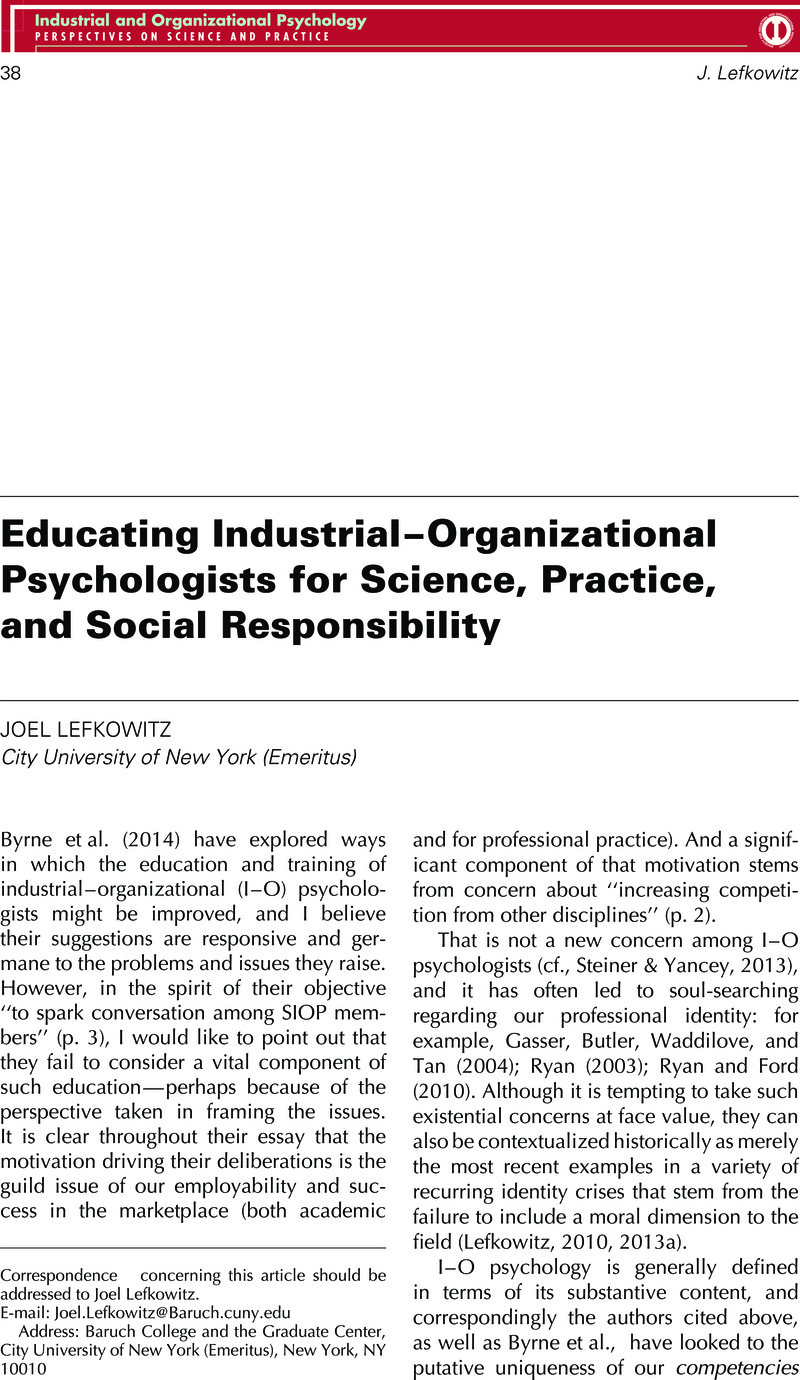Crossref Citations
This article has been cited by the following publications. This list is generated based on data provided by Crossref.
Lefkowitz, Joel
2014.
Psychology Departments Versus Business Schools: Tempest in a Teapot?.
Industrial and Organizational Psychology,
Vol. 7,
Issue. 3,
p.
311.
Lefkowitz, Joel
2016.
News Flash! Work Psychology Discovers Workers!.
Industrial and Organizational Psychology,
Vol. 9,
Issue. 1,
p.
137.
Lefkowitz, Joel
2017.
The Role of Values in Professional Licensing: The Resistance to Regulation.
Industrial and Organizational Psychology,
Vol. 10,
Issue. 2,
p.
223.
Lefkowitz, Joel
2019.
The conundrum of industrial-organizational psychology.
Industrial and Organizational Psychology,
Vol. 12,
Issue. 4,
p.
473.
Kato, Anne E.
2020.
Teaching I-O psychology for the greater good.
Industrial and Organizational Psychology,
Vol. 13,
Issue. 4,
p.
528.
Castillo-Sepúlveda, Jorge
and
Pasmanik, Diana
2021.
Toward the understanding of ‘the human' in engineering: a discourse analysis.
European Journal of Engineering Education,
Vol. 46,
Issue. 5,
p.
765.
Lefkowitz, Joel
2022.
Organizational outcomes: It’s not (only) a levels issue.
Industrial and Organizational Psychology,
Vol. 15,
Issue. 3,
p.
432.





